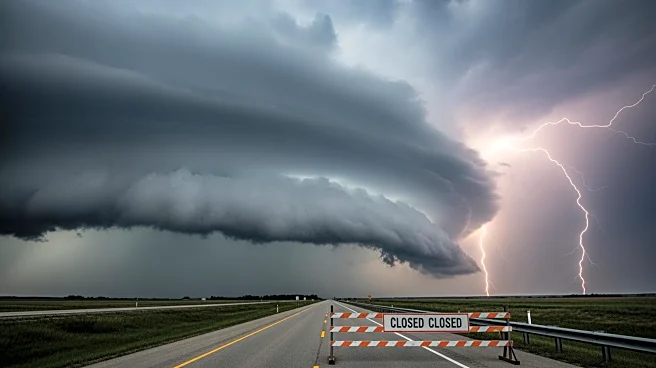What is the story about?
What's Happening?
Two brothers from Brooklyn have decided to enlist in the Israel Defense Forces (IDF) following an antisemitic attack on their father, Leonard, a prominent Zionist activist. The incident occurred nearly a decade ago after a basketball game between Maccabi Tel Aviv and the Brooklyn Nets, where Leonard was assaulted by pro-Palestinian demonstrators. This attack, witnessed by his sons, has now motivated them to serve in the IDF. The younger brother, Sgt. Y., has been serving in the Golani Brigade for two years, while the elder brother, D., recently made aliyah and plans to join the IDF as a lone soldier. Their decision is supported by the Lone Soldiers Program, which aids individuals serving in the IDF without immediate family in Israel.
Why It's Important?
The brothers' decision to enlist in the IDF highlights the impact of antisemitic incidents on Jewish communities in the U.S. and their connection to Israel. This move underscores the ongoing challenges faced by Jewish individuals in America and their resolve to contribute to Israel's security. The enlistment of these brothers may inspire other young Jewish Americans to consider similar paths, strengthening ties between the U.S. and Israel. It also reflects the broader sentiment of solidarity and resilience within the Jewish diaspora, particularly in the face of rising antisemitism.
What's Next?
D. is expected to join the IDF in December, following his brother's footsteps in the Golani Brigade. Their enlistment may prompt discussions within Jewish communities about the role of military service in strengthening Jewish identity and ties to Israel. Organizations like Nefesh B'Nefesh and Friends of the IDF will continue to support lone soldiers, potentially increasing their outreach and resources to accommodate more individuals inspired by similar motivations.
Beyond the Headlines
The brothers' story sheds light on the cultural and emotional factors driving Jewish Americans to connect with Israel. It raises questions about the influence of antisemitic incidents on personal and communal decisions, and the role of Zionist values in shaping life choices. This narrative may contribute to broader discussions on identity, belonging, and the responsibilities of diaspora communities in supporting their ancestral homeland.















